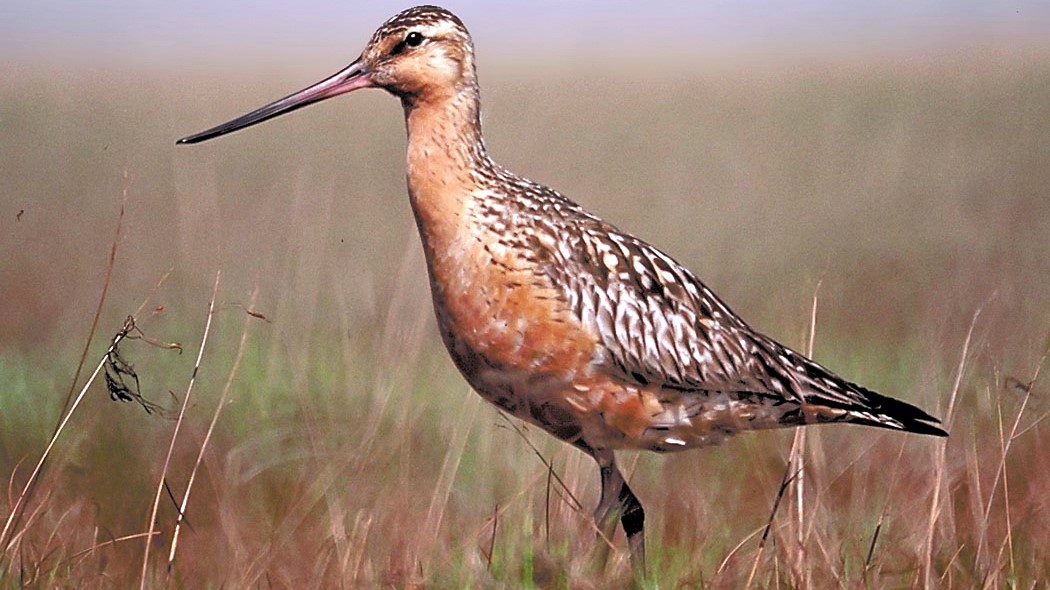Sep 22, 2022

Thought Question: What's the hardest thing you've ever done? How did you prepare to tackle that challenge?
Meet the bar-tailed godwit, nature’s most unflappable flapper. A bird of many qualities, the godwit has a long beak, stilt-like legs, and specialized wings. Those wings will be put to the test this month as 90,000 bar-tailed godwits make their yearly, record-long migration from Alaska to New Zealand.
Bar-tailed godwits fly an average of 7,000 miles every fall as they seek warmer weather in the South Pacific. It’s the longest migration of any land-based bird. Only a few types of seabirds fly farther. Godwits do not stop to eat or sleep, either. They remain in the air for over a week. And unlike other birds who rest by gliding, godwits never stop flapping their wings.
“I tell people try exercising for nine straight days — not stopping, not eating, not drinking,” a biologist told The New York Times. “It stretches the imagination.”
To manage the long flight, Godwits do a fair amount of their own stretching. They eat enough insects, worms, and clams in the summer to double their weight. That fattens them up with enough fuel to power their wings. Before leaving, they will also shrink their internal organs and expand their flight muscles. This has led some biologists to call them “obese super-athletes.”
“The more I learn, the more amazing I find them,” said Dr. Theunis Piersma, an expert in migratory birds. “They are a total evolutionary success.”

Photo from Public Domain courtesy Wikimedia Commons.

The Audubon Mural Project
This resource showcases many murals throughout New York City, featuring over 100 different bird species that have been or will be impacted by climate change.

Survival by Degrees
This interactive resource compiles millions of observations into maps and graphs to show how the ranges of hundreds of North American birds may be affected by climate change.

The Flight Free Podcast: Aviation and Wildlife
This podcast explains how airport expansion causes biodiversity loss, especially among birds.